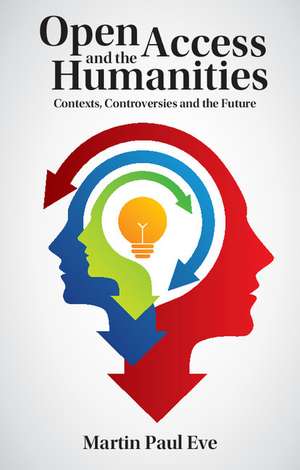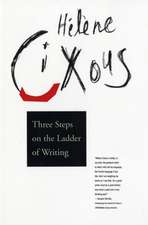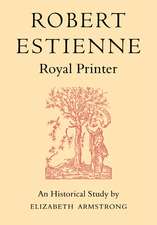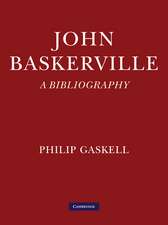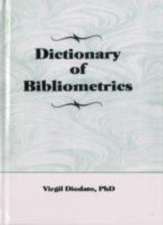Open Access and the Humanities: Contexts, Controversies and the Future
Autor Martin Paul Eveen Limba Engleză Paperback – 26 noi 2014
| Toate formatele și edițiile | Preț | Express |
|---|---|---|
| Paperback (1) | 174.38 lei 6-8 săpt. | |
| Cambridge University Press – 26 noi 2014 | 174.38 lei 6-8 săpt. | |
| Hardback (1) | 288.40 lei 3-5 săpt. | +20.93 lei 6-12 zile |
| Cambridge University Press – 26 noi 2014 | 288.40 lei 3-5 săpt. | +20.93 lei 6-12 zile |
Preț: 174.38 lei
Nou
Puncte Express: 262
Preț estimativ în valută:
33.37€ • 34.80$ • 27.73£
33.37€ • 34.80$ • 27.73£
Carte tipărită la comandă
Livrare economică 21 martie-04 aprilie
Preluare comenzi: 021 569.72.76
Specificații
ISBN-13: 9781107484016
ISBN-10: 1107484014
Pagini: 226
Ilustrații: 6 b/w illus. 1 table
Dimensiuni: 140 x 216 x 12 mm
Greutate: 0.27 kg
Ediția:New.
Editura: Cambridge University Press
Colecția Cambridge University Press
Locul publicării:New York, United States
ISBN-10: 1107484014
Pagini: 226
Ilustrații: 6 b/w illus. 1 table
Dimensiuni: 140 x 216 x 12 mm
Greutate: 0.27 kg
Ediția:New.
Editura: Cambridge University Press
Colecția Cambridge University Press
Locul publicării:New York, United States
Cuprins
Preface; 1. Introduction, or why open access?; 2. Digital economics; 3. Open licensing; 4. Monographs; 5. Innovations; Glossary of open access terms; Bibliography.
Recenzii
'Eve's book gives a synoptic and multi-layered overview of many of the different factors at play in scholarly communication in the humanities, and offers valuable suggestions about how a transition to open access in the humanities might take better account of these factors, bringing much needed critical and constructive reflection to the contemporary pursuit of a long held dream. It is essential reading for anyone interested in the future of open access and scholarly communication in the humanities, and a rallying call for more researchers to join those working to shape this future.' Jonathan Gray, Director of Policy and Research, Open Knowledge
'Open access for scholarly communication in the humanities faces some longstanding cultural/social and economic challenges. Deep traditions of scholarly authority, reputation and vetting, relationships with publishers, etc. coupled with relatively shallow pockets in terms of funding (at least compared to the sciences) and perceptions that the costs associated with traditional modes of scholarly communication are reasonable (at least compared to the sciences) can make open access a hard sell. Still, there are new opportunities and definite signs of change. Among those at the forefront confronting these challenges while exploring open access opportunities for the humanities is Martin Paul Eve.' Gary F. Daught, oaopenaccess.wordpress.com
'This book will mainly be of interest to humanities scholars, particularly if they have felt overwhelmed or bamboozled by the STEM-led drive to open access modes of scholarly publishing. I hope many of them will read it … Throughout, Eve's examination of how the drive to OA intersects with strong academic, economic, political and cultural cross-currents is studded with insight. He pulls apart the economics of publishing from the economics of academic prestige, questions the shifting perceptions of value of humanities scholarship situated within an increasingly marketised university system and a digital culture that demands greater transparency and engagement, and finds some common ground for humanities scholars and the authors of scientific research.' Stephen Curry, occamstypewriter.org
'… clear, explanatory and a great guide to the future.' Times Higher Education Supplement
'Open Access and the Humanities is thought-provoking and remarkably balanced, perhaps due to Eve's dual role as open access advocate and publisher. Eve approaches all of these complex issues in a spirit of philosophical investigation, and does not avoid examination of related issues such as academic freedom and research assessment. A broad audience of humanists, publishers, and librarians will find value in this exploration of open access for humanities disciplines.' Philip Young, Open at Virginia Tech
'Not only does Eve convincingly explain core concepts in open access, but he also offers well-informed discussions of points of contention.' Lisa Spiro, Digital Scholarship in the Humanities
'Open access for scholarly communication in the humanities faces some longstanding cultural/social and economic challenges. Deep traditions of scholarly authority, reputation and vetting, relationships with publishers, etc. coupled with relatively shallow pockets in terms of funding (at least compared to the sciences) and perceptions that the costs associated with traditional modes of scholarly communication are reasonable (at least compared to the sciences) can make open access a hard sell. Still, there are new opportunities and definite signs of change. Among those at the forefront confronting these challenges while exploring open access opportunities for the humanities is Martin Paul Eve.' Gary F. Daught, oaopenaccess.wordpress.com
'This book will mainly be of interest to humanities scholars, particularly if they have felt overwhelmed or bamboozled by the STEM-led drive to open access modes of scholarly publishing. I hope many of them will read it … Throughout, Eve's examination of how the drive to OA intersects with strong academic, economic, political and cultural cross-currents is studded with insight. He pulls apart the economics of publishing from the economics of academic prestige, questions the shifting perceptions of value of humanities scholarship situated within an increasingly marketised university system and a digital culture that demands greater transparency and engagement, and finds some common ground for humanities scholars and the authors of scientific research.' Stephen Curry, occamstypewriter.org
'… clear, explanatory and a great guide to the future.' Times Higher Education Supplement
'Open Access and the Humanities is thought-provoking and remarkably balanced, perhaps due to Eve's dual role as open access advocate and publisher. Eve approaches all of these complex issues in a spirit of philosophical investigation, and does not avoid examination of related issues such as academic freedom and research assessment. A broad audience of humanists, publishers, and librarians will find value in this exploration of open access for humanities disciplines.' Philip Young, Open at Virginia Tech
'Not only does Eve convincingly explain core concepts in open access, but he also offers well-informed discussions of points of contention.' Lisa Spiro, Digital Scholarship in the Humanities
Notă biografică
Descriere
A full account of the changes in scholarly communication in the digital age. This title is also available as Open Access via Cambridge Books Online.
